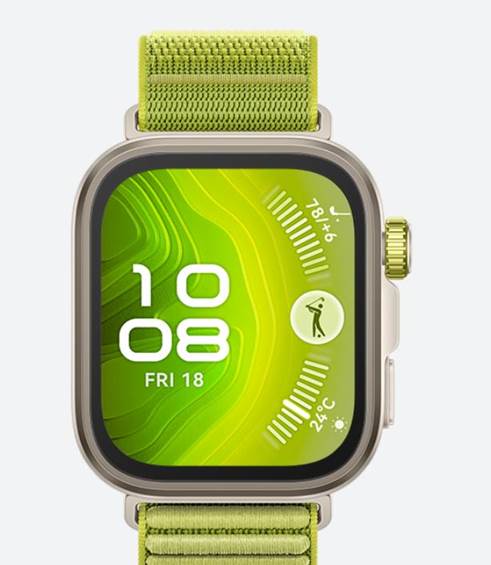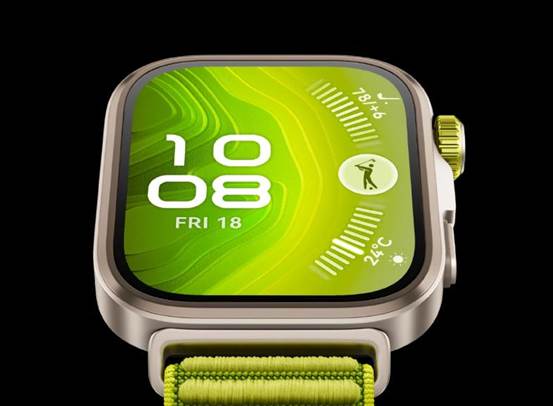Choosing
a smartwatch is no longer simply about appearance. With hundreds of models
offering showy features, the true challenge is deciding which ones you would
actually utilize. People want more than just step counting; they want actual
value in their daily lives, from health tracking to work and emergency
management. While some features appear amazing on paper, they are not all worth
your time or money. That is why this article focuses on what is genuinely
important when selecting a smartwatch. Whether you are a runner, a tech
enthusiast, or simply want to improve your daily routine, knowing the most
useful features might help you make the best decision.

What Do People Really Use Smartwatches For?
Health and Fitness Tracking Essentials
The
primary reason most people acquire a smartwatch is to track their health and
fitness levels. They use it to track heart rate, steps, calories, and even
blood oxygen levels. These features help people stay on track with their
exercise goals. Features such as guided breathing and daily activity rings help
to keep motivation high. Whether you are going to the gym or walking the dog,
precise sensors and real-time data make a difference. Devices such as the
Huawei Watch Fit 4 Pro have lifted the standard by combining health indicators into simple
dashboards, offering customers greater control over their personal wellness.
Everyday Utility and Notifications
A
wristwatch keeps you connected without the need to whip out your phone. Calls,
messages, calendar alerts, and app notifications appear right on your wrist.
This basic feature saves time and minimizes distractions. Smartwatches also
allow you to set timers, manage music, and check the weather with a single
swipe. When commuting, working out, or attending meetings, looking at your
wrist is more efficient than going through your pockets. People appreciate this
convenience. It is subtle but effective, particularly when combined with spoken
responses or rapid motions. That everyday utility elevates smartwatches to the
status of necessary tools rather than mere accessories.
Personal Safety and Emergency Features
Personal
safety is an increasing concern with smartwatch technology. Fall detection,
emergency SOS, and live location sharing are all features that provide peace of
mind. If something goes wrong, certain models will notify emergency contacts or
summon local authorities. These capabilities are especially beneficial to the
elderly, runners, and persons with medical issues. Smartwatches can also notify
consumers of abnormal heart rates, requiring quick medical intervention. When
seconds count, immediate communication via your wrist can be lifesaving. The
Huawei Watch Fit4 Pro includes many of these capabilities, making it a good
option for individuals who value both fitness and safety.
Which Health Features Are Worth the Hype?
Heart Rate and Blood Oxygen Monitoring
Heart
rate monitoring is increasingly standard. However, accuracy varies greatly
between devices. Precise sensors are required for real-time tracking when
exercising or sleeping. Blood oxygen (SpO2) monitoring, which was formerly
considered a luxury, is increasingly more routine. It is beneficial to
athletes, those living at high altitudes, and those with respiratory issues.
However, some less expensive machines produce incorrect readings. Premium
smartwatches, such as the Huawei Watch Fit 4 Pro, give more accurate data
thanks to powerful algorithms. These readings are more than just numbers; they
can guide your exercise intensity or alert you to early health warnings, making
them standout features.
Sleep and Stress Tracking Accuracy
People
use sleep and stress tracking to improve their overall well-being. A decent
wristwatch should detect deep, light, and REM sleep stages and provide
recommendations for better sleep. Stress monitoring often combines heart rate
variability with skin temperature or movement data. Some devices even help
people perform breathing exercises. The difficulty is accuracy; some models
overreport or underreport outcomes, causing confusion. Smartwatches that track
continually and sync with health applications provide more insights. The Huawei
watch fit4 pro, for example, is known for its precise sleep analysis and
practical stress feedback, which allow users to make informed lifestyle
changes.
Workout Detection and GPS Performance
Smartwatches
that automatically identify workouts are game changers. They activate
automatically when you start jogging or riding. Accurate GPS ensures that your
distance, pace, and route are appropriately recorded. Athletes rely on this
data to track their growth. Some gadgets also monitor elevation, cadence, and
swimming strokes. However, low-end versions frequently have GPS slowness and
signal drops. The Huawei Watch Fit4 Pro combines rapid GPS lock with
dual-frequency tracking to provide more precise outdoor performance. Whether
you are on trails or city streets, this function ensures that your efforts are
recognized and your records remain accurate.

Are Smart Features Really That Smart?
Voice Assistants and Smart Replies
Voice
assistants provide convenient hands-free control. Users can use simple voice
commands to check the weather, make reminders, and send texts. Smart replies
let you rapidly respond to messages using predefined texts or voice-to-text.
These features save time, particularly while driving or exercising. However,
certain aides are limited in regions with no internet or in noisy environments.
The better ones integrate seamlessly with your phone's ecosystem and can
understand natural language. While not always flawless, they are rapidly
improving. The Huawei Watch Fit4 Pro has smart voice control, making it easier
to engage with notifications and schedule chores.
App Support and Ecosystem Compatibility
The
variety of apps and ecosystem compatibility of a smartwatch affect its
usefulness. Good models can run third-party productivity, messaging, and
fitness apps and sync with both iOS and Android. Usability is enhanced by the
smooth integration of smart home appliances, maps, and phone calendars. Certain
brands limit their customers' flexibility by tying them to their own
ecosystems. Open systems let you add programs to your watch that are tailored
to your needs. With cross-platform syncing and an expanding software library,
the Huawei Watch Fit4 Pro is appropriate for a wider variety of users and
gadgets.
Contactless Payments and Music Control
Contactless
payment transforms your smartwatch into a wallet. You may pay for coffee or
transportation without using a phone or a credit card with a single tap.
Meanwhile, music control allows you to change the volume, skip tracks, and
switch playlists while jogging or commuting. These intelligent features improve
real-world convenience. Not every smartwatch accepts all payment methods, and
some lack local bank connectivity. Music controls are more widely applicable,
but storage and app compatibility varies. The Huawei Watch Fit4 Pro supports
both tasks, making daily life easier—especially when you are on the go and want
to stay light and connected.
Design, Battery, and Durability: What Should You
Prioritize?
Display Quality and Size Options
A
crisp, colorful display enhances readability both indoors and outdoors. AMOLED
screens provide more contrast and power efficiency than LCDs. Touch
responsiveness and always-on modes have an impact on daily use. Size is also an
important consideration—small wrists require compact cases, whereas large ones
may prefer larger screens. Lightweight builds improve comfort, especially
during exercises or sleep. Smartwatches with configurable watch faces and UI
scaling increase attractiveness. The Huawei Watch Fit4 Pro strikes a mix
between a sharp display and a variety of size options. Whether you are reading
data at the gym or checking texts in direct sunlight, screen quality has a big
impact on user experience.
Battery Life in Real-World Usage
A
smartwatch's battery life may make or break the experience. While some boast
multi-day battery life, real-world use—notifications, GPS, workouts—frequently
drains them faster. A smartwatch should last at least a full day of moderate
use. Power-saving modes are beneficial, but they should not limit
functionality. Charging time is also important; faster charging minimizes
downtime. Watches like the Huawei Watch Fit4 Pro provide up to ten days of use
with quick recharge options, setting a high standard. Reliable battery life
means fewer charging problems and more time spent on health or business rather
than the nearest outlet. It is a characteristic that any serious buyer should
prioritize.
Water Resistance and Build Material
Smartwatches
can be exposed to perspiration, rain, and even swimming pools. Water resistance
is crucial for active users. Look for standards like 5ATM or IP68, which
indicate that it is safe to use in the shower or while swimming. Durability is
also affected by the building material—stainless steel, ceramic, and tempered
glass last longer than inexpensive plastic. Scratch resistance is important if
you use the watch outside. However, comfort should not be sacrificed;
lightweight materials and hypoallergenic bands make them more wearable. The
Huawei Watch Fit4 Pro combines a durable, water-resistant design with premium
materials, making it ideal for both workouts and professional settings without
sacrificing comfort or durability.
Conclusion
Not
all smartwatch features are worth pursuing. Concentrate on what actually
enhances your daily life: dependable health tracking, useful smart features,
and long-lasting design. While brands attempt to outdo each other with showy
gadgets, the finest smartwatches prioritize practicality. A device such as the
Huawei Watch Fit4 Pro demonstrates how deliberate design and feature balance
may result in an optimal experience. Whether you are tracking your workouts,
staying safe, or managing your day, choose a wristwatch that delivers where it
matters. Skip the gimmicks and invest in features that make your life easier,
healthier, and more connected—all from your wrist.
